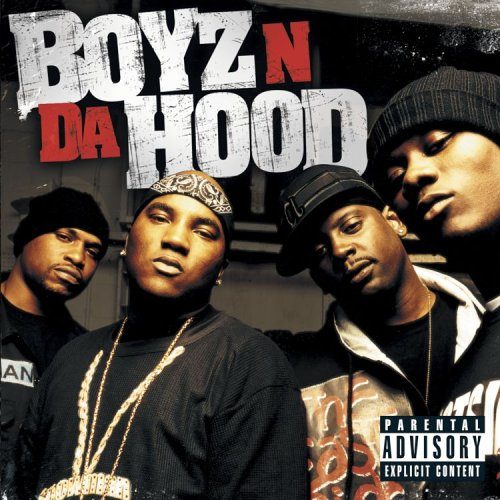Always jogging along with the times, P Diddy has added a crew of Atlanta rappers to his label. Though he has struggled to find the next B.I.G. on both a commercial and a talent level, he has built an empire that extends far beyond music. His inking of the Southern group Boyz N Da Hood signals that he is well aware of the pop situation in hip-hop, as the oft-mocked enthusiastic wailing of Lil’ Jon has brought the region to fame. By now, it is trite to proclaim that the Dirty South is just appearing on the musical map, because the region is clearly a permanent and powerful force within the genre.
These Boyz do not continually tout their area as the best, which I must say is refreshing. Regardless, thirty seconds with their music will reveal their origins, because they all possess the unmistakable drawls that their predecessors have. There is plenty of unique music being made in the South, but the Boyz N Da Hood share more than just the accent with the rest of the Southern bounce that is currently being looped through Clear Channel institutions everywhere. This is the most detrimental element of their self-titled debut. Just as other sub-genres of hip-hop have learned to do, the natural evolution of this type of music must be to creatively morph instead of settling. This album is a case of the Boyz settling for what they know will sell.
Let’s be honest here: P Diddy would not have signed the Boyz N Da Hood if he did not expect them to move out of the store. He knows what the market wants, and he has provided it here. Duke, Big Gee, Jeezy, and Jody Breeze are just as conventional as their monikers might suggest, and since their minds are trapped in these conventions, their collective talents are dulled significantly. I’m not one to suggest that heavy club music with lots of gun-clapping and chanting choruses is a calculated sound that the group has decided on to move units. This is undoubtedly false. The simple fact is, though, that we have all heard similar music done better.
There are certainly moments that provide hope, especially since “Boyz N Da Hood” is a debut. “Lay It Down,” produced by Jasper, has hints of a more catchy melody, using a chorus of girls incessantly amidst the constant screams and gunshots. Bleeding through the overly abrasive rapid drum kicks of this album are occasional bits of true and organic funk. Interesting lines such as “I used to work at churchs chicken, but now I cook my chickens in my own kitchen” are slipped in amongst the rubble of violent, inconsequential rhymes. Most notably, Jazze Pha enlightens the record with the welcome slow dripping funkiness of “Happy Jamz.” Here, the crew rises to the occasion, providing an actual framed concept that is far more memorable than the rest of the material. “I’d hate to lose my momma ‘cause that lady cook some good food” seems shallow, but it’s far more insight than is provided anywhere else, and this type of mentality makes “Happy Jamz” unique. Aside from this, the simple fact that the pace is mellowed so drastically by this cut is quite important.
The rhymes of this quartet are another source of hope to listeners, because they infrequently manage to explore their own potential a bit. Their description of the city they live in can be pieced together through scattered rhymes that carry actual detail, and a few songs contain shreds of potentially vivid storytelling abilities. All they really need to do to hold my attention is put a face to each voice, which is something completely absent on “Boyz N Da Hood.” Each rapper is concerned with keeping the block hot, macking, and busting shots at haters. The decidedly fabricated electronic quality of the beats is mirrored in the lyrics, because the rappers have been tainted, as the production has, by their own perceived expectations of what they should do as dictated by the state of popular rap music. Technically speaking, each artist is quite proficient in delivery and such, but none of the four even tries to be memorable.
One supremely odd moment warrants mentioning. A collaboration with the late Eazy E, produced by Erick Sermon, comes in the form of track six, “Gangstas.” Aside from the fact that Eazy’s energetic voice is always refreshing, this collabo is truly strange. The only connection that the Boyz N Da Hood have with Eazy is their group name, but the Green Eyed Bandit provides a typical beat that manages to conform to the unified sound of the album while sounding fresh. I’m not sure how this song came about, but it is ultimately one of the best on the disc.
If I haven’t convinced you, check the back of the album for the song titles. Read “Dem Boyz,” Bitches & Bizness,” “If U A Thug,” and “Pussy M.F.’s,” among others. What you see is mostly what you get. If the commercially glossed version of crunk music is your thing, go for it. This will surely make you happy. Others have done it better, however, so if you’re just a passerby, please keep walking. The Boyz N Da Hood are victims of their own beliefs in the machine of popular music and what is expected of them, and their music reflects this. The units they are sure to move will be ample consolation, I’m sure.

